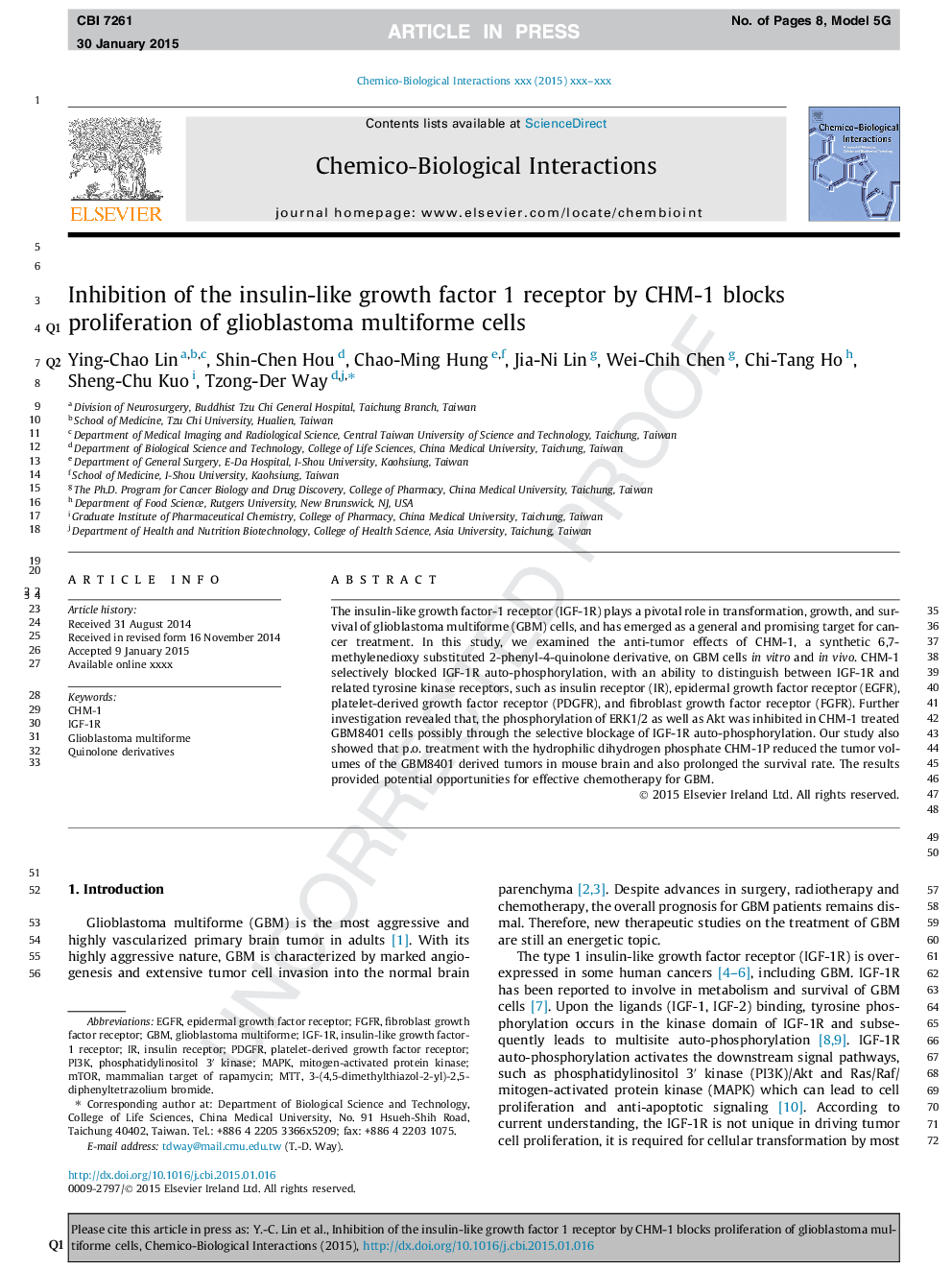| Article ID | Journal | Published Year | Pages | File Type |
|---|---|---|---|---|
| 5847864 | Chemico-Biological Interactions | 2015 | 8 Pages |
Abstract
The insulin-like growth factor-1 receptor (IGF-1R) plays a pivotal role in transformation, growth, and survival of glioblastoma multiforme (GBM) cells, and has emerged as a general and promising target for cancer treatment. In this study, we examined the anti-tumor effects of CHM-1, a synthetic 6,7-methylenedioxy substituted 2-phenyl-4-quinolone derivative, on GBM cells in vitro and in vivo. CHM-1 selectively blocked IGF-1R auto-phosphorylation, with an ability to distinguish between IGF-1R and related tyrosine kinase receptors, such as insulin receptor (IR), epidermal growth factor receptor (EGFR), platelet-derived growth factor receptor (PDGFR), and fibroblast growth factor receptor (FGFR). Further investigation revealed that, the phosphorylation of ERK1/2 as well as Akt was inhibited in CHM-1 treated GBM8401 cells possibly through the selective blockage of IGF-1R auto-phosphorylation. Our study also showed that p.o. treatment with the hydrophilic dihydrogen phosphate CHM-1P reduced the tumor volumes of the GBM8401 derived tumors in mouse brain and also prolonged the survival rate. The results provided potential opportunities for effective chemotherapy for GBM.
Keywords
phosphatidylinositol 3′ kinaseCHM-1PDGFRFGFRIGF-1REGFRGBMmTORPI3K3-(4,5-dimethylthiazol-2-yl)-2,5-diphenyltetrazolium bromideMAPKMTTQuinolone derivativesmammalian target of rapamycinmitogen-activated protein kinaseGlioblastoma multiformeinsulin receptorplatelet-derived growth factor receptorInsulin-like growth factor-1 receptorEpidermal growth factor receptorfibroblast growth factor receptor
Related Topics
Life Sciences
Environmental Science
Health, Toxicology and Mutagenesis
Authors
Ying-Chao Lin, Shin-Chen Hou, Chao-Ming Hung, Jia-Ni Lin, Wei-Chih Chen, Chi-Tang Ho, Sheng-Chu Kuo, Tzong-Der Way,
